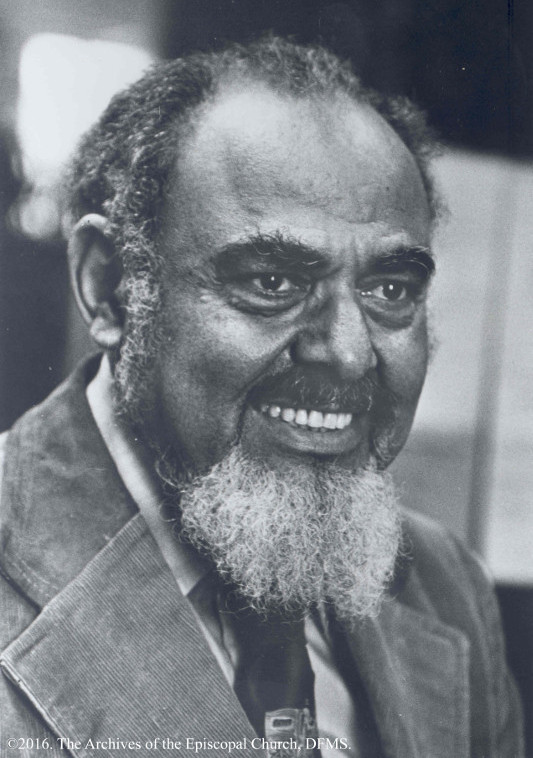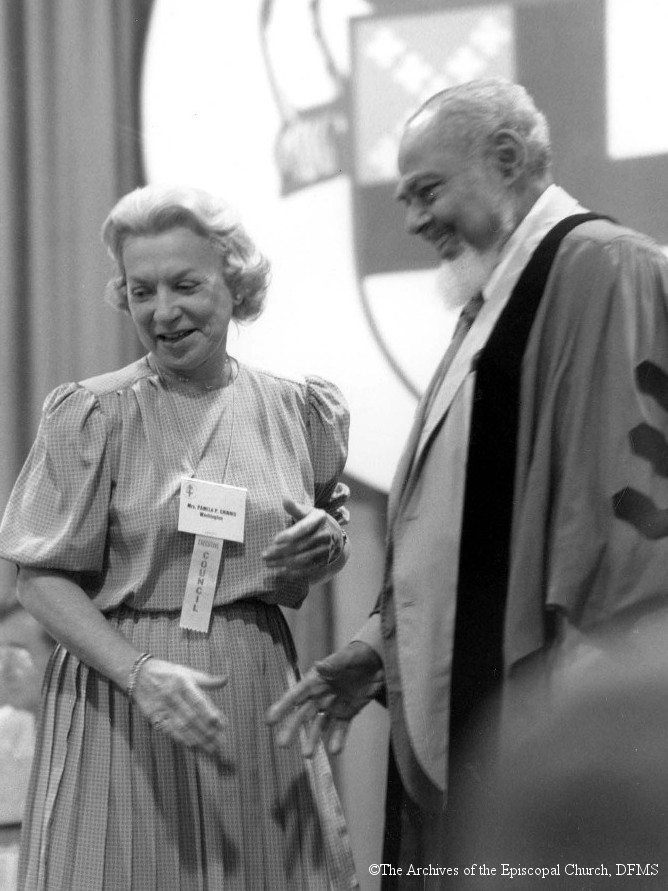November 8, 2017

The Archives of the Episcopal Church has recently received the personal papers of Dr. Charles Radford Lawrence II, 27th President of the House of Deputies from 1976 to 1985. Dr. Lawrence is honored as the first and only African American President of the House. In his secular work, Lawrence was a distinguished professor of sociology. The 14 cubic feet collection was donated by his wife Dr. Margaret Morgan Lawrence and their three children, Dr. Sara Lawrence Lightfoot, Dr. Charles R. Lawrence III, and the Reverend Paula Lawrence-Wehmiller.
The papers span a crucial period of turmoil and challenge in the Episcopal Church. They provide an important perspective on the radical adjustments in the institutional life of the Church during that era, and also of the remarkable influence of lay leadership, the voice of an influential scholar, and the practical experience and know-how of a church leader.
Director of Archives Mark Duffy welcomed the expression of support for The Episcopal Church that this acquisition represents. “Dr. Lawrence applied his steady hand and unflappable demeanor to the task of changing the tide of history, work that can only be understood by his love of this Church and its Prayer Book traditions. He opened long-sealed windows to the refreshing winds of inclusion, and helped to guide the Church through a dramatic transformation from exclusivity and privilege to a new vulnerability and historic openness.”
The collection reflects the diversity and breadth of Lawrence's involvement in the Church, which he served actively from 1952 until his death in 1985. Initially a vestryman and Senior Warden at St. Paul’s in Spring Valley, New York, he became the first black Senior Warden at historic Trinity Church in New York City. Lawrence served on a diocesan level as a member of the Diocesan Council and the Interparish Council of the Diocese of New York. A series of vestry minutes and related documents reflects this work.
On the national level, Lawrence served on a number of General Convention committees, commissions, and boards. His most influential appointment was as Chairman of the House of Deputies Special Committee on the Ordination of Women to the Priesthood and Episcopate. He also served on the Executive Council's Special Advisory Committee on Church in Society, which he co-chaired with Bishop Paul Moore, Jr. Lawrence was a staunch advocate for women's ordination and contained among his papers are source materials relating to the subject.

Lawrence served as a Deputy to General Convention from 1967 until his death in 1985, attending eight conventions. When he was elected President of the House of Deputies in 1976, he became the first African American and only the third lay person to hold that office in the House's 191-year history. Two of the most controversial changes in the Church in the 20th century, the ordination of women and the adoption of the 1979 Book of Common Prayer, occurred during his presidency. Their topical primacy in church life is reflected in the corresponding extent of related materials in his papers.
Also included in the papers are records illuminating aspects of Lawrence's long career as a professor of Sociology at Brooklyn College, City University of New York, where he taught from 1948 until his retirement in 1977. Both Lawrence and his wife, psychiatrist Dr. Margaret Lawrence, were influential in the study of race in America. Margaret's work centered on the long-term effects of racism on the health of black families, and particularly on children. Journals and writings on these and other academic topics constitute part of the Lawrence papers. Drafts of Charles Lawrence's masters and doctoral theses, as well as notes from course-work, round out this record of his academic life.
The collection is enhanced by a moving set of correspondence that speaks endearingly of Charles and Margaret’s close personal relationship, which they sustained by weaving their work, secular accomplishments, an ongoing spiritual journey, and family life into a seamless bond of counsel, love, and support.
The papers are currently scheduled for processing, after which they will be available for research. The Archives of the Episcopal Church expresses its profound thanks to Paula Lawrence-Wehmiller, who represented the Lawrence family in this donation, and to Dr. Margaret Lawrence for her generosity.
